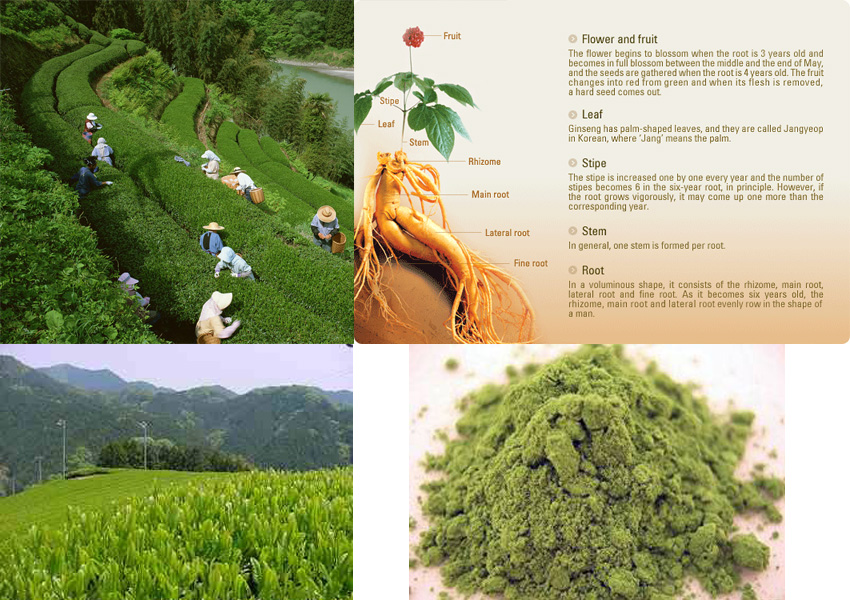HEALTHY PROSTATE

GINSENG EXTRACI + POMEGRANATE EXTRACI + ZINC VITAMIN A+C+D+IRON
Green Tomato Extract
THIS RECEPIE IS ONLY RECOMMENDED FOR ENLARGED PROSTATE
 Polyphenols (EGCG}
Polyphenols (EGCG}
S.O.D——————————–1.4 * 10,000/gram
Calcium)——————————317mg/100g
(Zinc)—————————- 35.8ppm
Carotene—————————— 19.2mg/100g
Vitamin A—————————— 10,7100 IU/100g
Vitamin C—————————— 353mg/100g
Vitamin E—————————— 36.4mg/100g
Chloraphyll—————————– 355mg/100g
 UCLA-led Study First to Show Green Tea Helps Prevent Chronic Gastritis
UCLA-led Study First to Show Green Tea Helps Prevent Chronic Gastritis
Date: May 14, 2001
Contact: Dan Page (email)
Phone: (310) 794-2265
Green-tea drinkers suffer chronic gastritis half as often as nondrinkers, according to a new study led by researchers at the UCLA School of Public Health and Jonsson Comprehensive Cancer Center at UCLA. The findings are the first to link green tea to lower rates of chronic gastritis.
The study, published in the May edition of the peer-reviewed International Journal of Cancer, also supported previous research showing green-tea drinkers have lower risk of stomach cancer — in this case, 48 percent — than nondrinkers. In addition, researchers found as frequency and duration of tea drinking increased, the risk of both chronic gastritis and stomach cancer decreased.
Chronic gastritis is a common inflammatory disease that causes precancerous lesions of the stomach. The progression from chronic gastritis to stomach cancer is slow. Green tea contains antioxidants that researchers believe may inhibit the development of chronic gastritis and halt the progression of stomach cancer.
“This is the first time that green tea drinking was found to protect against chronic gastritis,” said principal investigator and lead author Dr. Zuo-Feng Zhang, a professor of epidemiology in the UCLA School of Public Health. “The study suggests that using green tea to treat chronic gastritis and as a preventive therapy in high-risk populations would reduce the incidence of stomach cancer in the long term.”
Researchers conducted the study in Yangzhong, China, investigating 133 stomach cancer cases, 166 chronic gastritis cases and 433 healthy individuals. Results were adjusted to account for differences in age, gender, education, body mass, cigarette smoking and alcohol consumption.
Incidence of stomach cancer is second only to lung cancer worldwide. Thirty-eight percent of stomach cancer cases in the world occur in China, where it remains the most common cancer in both sexes.
Tea, the most widely consumed beverage in the world, is derived from a single plant (camellia sinensis) and grown in 30 countries. Seventy-eight percent of the total produced for consumption is black, 20 percent green and 2 percent oolong. Green tea is consumed primarily in Asian countries, such as Japan and China, and in some parts of North Africa and the Middle East.
Primary funding for the study was provided with a grant from the NIH National Cancer Institute, Department of Health and Human Services.
In addition to Zhang, other researchers involved in the study were Veronica Wendy Setiawan and Qing-Yi Lu of UCLA; Guo-Pei Yu of New York Eye and Ear Infirmary; Yong-Liang Li of Columbia University; Ming-Lan Lu and Robert C. Kurtz of Memorial Sloan-Kettering Cancer Center; Ming-Rong Wang and Chun Hua Guo of the Yangzhon County (Peoples Republic of China) Anti-Epidemic Station; Shun-Zhang Yu of Shanghai Medical University; and Chung-Cheng Hsieh of the University of Massachusetts Cancer Center.
Online Resources:
a.. UCLA School of Public Health: http://www.ph.ucla.edu/
b.. UCLA’s Jonsson Comprehensive Cancer Center: http://www.cancer.mednet.ucla.edu/
Green Tea Linked to Skin Cell Rejuvenation
Christine Hurley Deriso
Research into the health-promoting properties of green tea is yielding information that may lead to new treatments for skin diseases and wounds.
Dr. Stephen Hsu, a cell biologist in the Medical College of Georgia Department of Oral Biology, has uncovered a wealth of information about green tea in the last few years. Most importantly, he helped determine that compounds in green tea called polyphenols help eliminate free radicals, which can cause cancer by altering DNA. He also found that polyphenols safeguard healthy cells while ushering cancer cells to their death.
He recently began studying the most abundant green tea polyphenol, EGCG. Using pooled human keratinocytes (skin cells), he and his colleagues studied the normal growth of the skin cells and compared it to the growth of the cells when exposed to EGCG.
To their astonishment, they found that EGCG reactivated dying skin cells. “Cells that migrate toward the surface of the skin normally live about 28 days, and by day 20, they basically sit on the upper layer of the skin getting ready to die,” Dr. Hsu said. “But EGCG reactivates them. I was so surprised.”
The skin consists of three layers: the epidermis (outer layer), dermis (mid-layer) and hypodermis (inner layer). Dr. Hsu learned that green tea polyphenols aren’t absorbed beyond the epidermis, so any benefits are limited to that outer layer of skin. But the benefits, he stressed, seem significant.
Cells in the epidermis, or keratinocytes, are in a constant state of renewal. The newly formed cells, stem cells, are undifferentiated but rapidly dividing. As they push through the epidermis, they begin differentiating. During this migration and differentiation process, the cells are very active, expending and consuming vast amounts of energy.
Once they reach the surface of the skin, their metabolic activity slows dramatically and they prepare to die, while forming a water-proof, sheet-like structure. As they die off about a month into their life cycle, they are replaced by another wave of migrating cells supplied by stem cells, starting the process all over again.
But EGCG seems to be a fountain of youth for skin cells. “When exposed to EGCG, the old cells found in the upper layers of the epidermis appear to start dividing again,” Dr. Hsu said. “They make DNA and produce more energy. They are reactivated. There are lots of unknowns—this is the first step into the door—but if we can energize dying skin cells, we can probably improve the skin condition.”
In addition, the researchers found that EGCG accelerates the differentiation process among new cells.
Combining these effects of EGCG on skin cells in different layers of the epidermis, Dr. Hsu noted potential benefits for skin conditions as diverse as aphthous ulcers, psoriasis, rosascea, wrinkles and wounds. “If skin cells surrounding wounds or infections don’t heal in time, fibroblasts in the connective tissue may rush in to fill the void and cause scar tissue formation,” he said. “If we can spur the skin cells to differentiate and proliferate, we can potentially accelerate the wound-healing process and prevent scarring.”
This potential benefit is particularly exciting for conditions such as diabetes, which stubbornly inhibits the wound-healing process, Dr. Hsu said.
He and his colleagues hope to identify dermatologists interested in collaborating on clinical studies of EGCG and other polyphenols on patients.
Dr. Hsu’s research, which is excerpted on the online version of the Journal of Pharmacology and Experimental Therapeutics, is funded by the Dental Research Foundation, the MCG School of Dentistry and MCG Research Institute
a.. Vitamin A: 16,000IU
b.. Vitamin B1: 0.6mg
c.. Vitamin B2: 1.35mg
d.. Vitamin C: 60mg
e.. Vitamin E: 35.9mg
f.. Proteins & Amino Acids: 30.7%
g.. Fiber: 10%
h.. Caffeine: 3.2%

